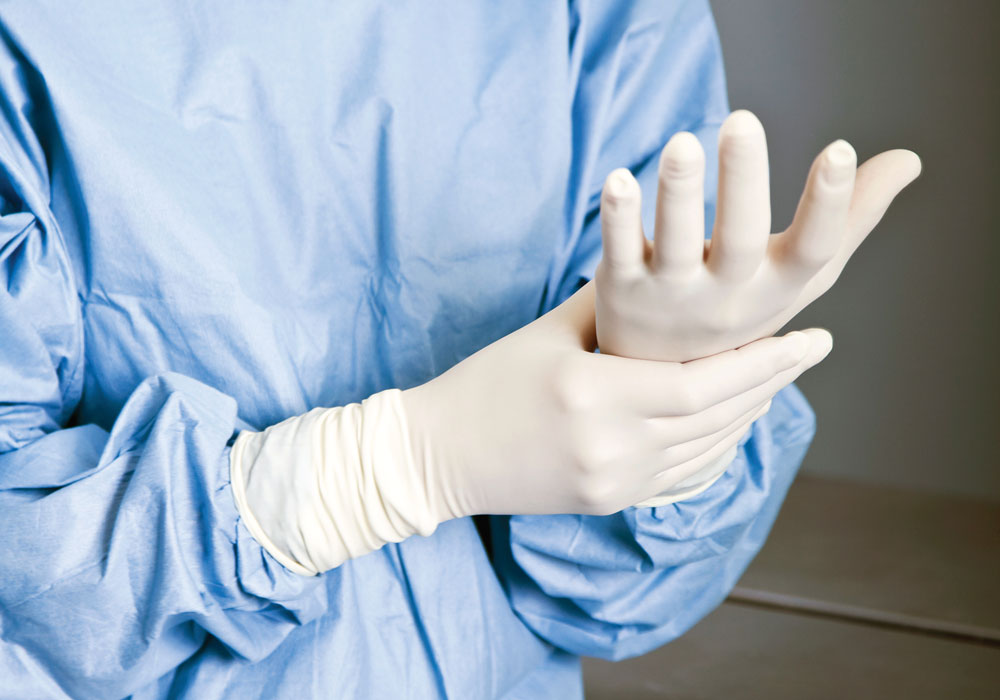By Marsena R. Pelton, MSN, BSN, RN, OCN®, and Jayshree Shah, AOCNP®, RN, FNP-C, MSN, BSN, BS
As the United States reopens and social distancing moves into different phases, concerns remain about containing the COVID-19 coronavirus. Anxiety and stress are high as nurses and other healthcare professionals who are caring for COVID-19 positive patients are worried about their own health and the health of their families. A paramount fear is inadvertently spreading the virus to ourselves or our loved ones.

To continue to maintain the flattened curve, we need to understand the chain of infection and how viruses like COVID-19 are transmitted. If even one link in the chain is broken, we can stop the spread. Here’s what nurses need to know.
Remember the Basics
First, everyone should adhere to standard, transmission-based precautions, as recommended by the Centers for Disease Control and Prevention (CDC), National Comprehensive Cancer Network, and ONS.
Remember that social distancing is not the same as physical distancing. Encouraging social interactions with loved ones is important to our emotional and mental well-being—just keep them virtual or in an outdoor space with protective precautions in place. The same goes for engaging in any other physical or mental health practices.
Carefully follow your organization’s policies regarding controls to reduce risks, such as using telehealth, screening patients prior to visits, limiting visitors, using negative air pressure airborne isolation patient rooms, and more.

Educating Everyone
Educate yourself on how to properly don and doff personal protective equipment (PPE) in a way that prevents self-contamination. Perform hand hygiene with soap and water for a minimum of 20 seconds before and after all patient contact, contact with potentially infectious materials and surfaces, and putting on and removal of PPE, including gloves.
Educate your family and friends on the importance of proper handwashing, respiratory etiquette, and physical distancing. No one should be sharing utensils, dishes, or hygiene items during this time.
During Your Clinical Rotation
As you leave the clinical area, thoroughly wash your hands and forearms with soap and dry them fully. Avoid touching your eyes, mouth, nose, ears, and face throughout the day. Disinfect your phone or other frequently touched items before bringing them inside your home.
After Work
The end of a workday is a critical time to remain cautious. Avoid wearing work clothes, including shoes, into any stores or public areas. If possible, change out of everything you wore during your shift prior to leaving work, and seal the clothes in a plastic bag. Once home, thoroughly wash your hands again.
Washing and Disinfecting
Work clothes can be washed in hot water as normal laundry. Also avoid taking any items from work to your home. Clean and disinfect your home and vehicle regularly, using products with Environmental Protection Agency-approved emerging viral pathogen claims as recommended by CDC.
Ultimately, using appropriate precautions at work will help minimize the nurse exposure risk to COVID-19. Maintaining these prudent measures at home and in the community can prevent the spread to family members, friends, and the public.






